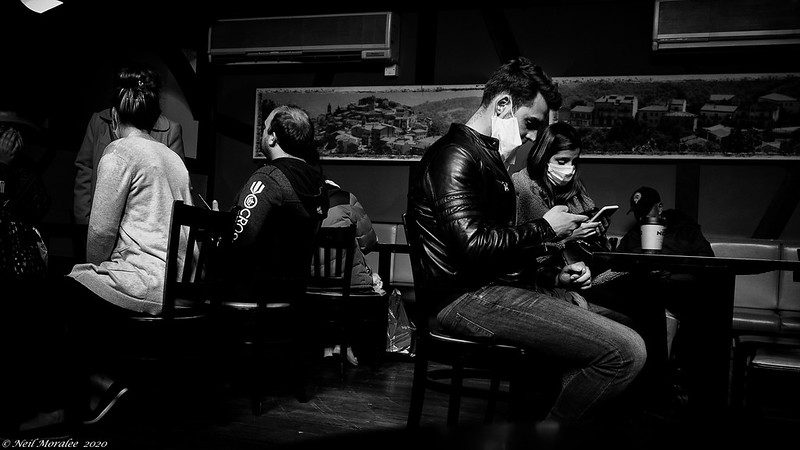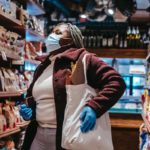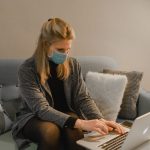
When someone walks into Julie Algubani’s clothing store, the first thing she does is check for a mask. If the customer is wearing one, then she’ll put one on as well.
And if a customer happened to ask, the owner of Modesty Marketplace in Amherst, New York, would be honest, and recommend that others take precautions to stop the spread. But “I can’t force anyone” to mask up or vaccinate themselves, she says.
And besides, “there really isn’t any kind of push for masking up anymore.”
There isn’t much push for any sort of Covid mitigation measures these days. Indeed, the vast majority of states and major cities have eased whatever Covid-related restrictions they might have had in place previously – if they haven’t dropped them altogether.
Algubani sets her in-store Covid policy using a mixture of remaining state-level mandates and CDC guidelines. Yet recommendations from the CDC have also become increasingly lax. Just this month, the center released new, looser guidelines that shorten suggested isolation periods for those with Covid infections and nix quarantine recommendations following known exposures.
Finding such information is a tougher prospect these days, too, as both research and anecdotal evidence point to decreases in Covid-related messages from governing bodies and media outlets. All the while, Covid continues to spread, thanks in large part to the now-dominant, highly transmissible BA.5 variant. On Monday, over 120,600 new cases were reported in the U.S. – not to mention those not recorded due to home testing – as well as nearly 600 deaths.
The result is a public that’s still at risk, but with far fewer protective policies in place, and information that’s harder than ever to access. We spoke with several business owners who are sticking to strict “no mask, no service” policies. But many others are of the same mind as Algubani – seeking to protect employees and clientele alike, but finding that the way forward is “just not clear anymore” at this stage of the pandemic.
A Scattershot Approach to a Shared Problem
There’s nothing united about states’ responses to Covid.
While some, like Vermont and Maine, have gotten more than 70% of their populations vaccinated and over 50% of residents boosted, less than 60% of folks in Alabama and Mississippi have gotten their first jabs, and fewer than 25% are boosted. And Americans are, individually, of many differing minds when it comes to the necessity of vaccines and masks in the first place, with over 25% doubting or outright denying the effectiveness of such measures.
You don’t have to tell that to Nicole Van Lun. She’s the founder of luxury skincare line Gorgeous Confidence, and runs her team of 4 remotely from her Las Vegas home. In 2021, while in the midst of her company’s product-testing phase, she and her family moved from the San Francisco Bay Area to Nevada. “[J]ust that move alone was such a different energy around Covid,” with California having far more restrictions in place, she says. “It was different, seeing people so relaxed about it – almost as if it wasn’t happening.”
Messaging problems play a significant role in this lack of Covid-related cohesion, with 60% of Americans reporting confusion surrounding public health recommendations. News reporting is also scant, relatively speaking, which further exacerbates the problem. Coverage had already waned significantly by January 2021. Now, say founders who spoke with The Story Exchange, if you want Covid-related news, it’s up to you to find it.
Van Lun says she heard about the latest wave not through media outlets – she says it’s almost nowhere to be found in the local broadcasts she watches – but rather, through a mix of social media posts, observed dwindling supplies of cold and flu medication in her local pharmacies, and her family’s own Covid infection in June. “We have to actively look for” updates, she adds.
Chamieka House-Osuya gets it. She’s the founder and CEO of The Snack Sack, a national social services nonprofit she launched to help families retain access to free lunches when schools shut down in March 2020. Her organization operates throughout the country, and per company policy, whenever staffers meet with families, “we make sure they are fully masked.”
But House-Osuya lives in Texas, where “a lot of our Covid mandates fell off a long time ago. It’s been extremely frustrating.” Worse, she adds, is trying to keep track of what employees must or should do based on the mandates and case rates in their specific states. “You have to be intentional about finding the information you need” at this point, House-Osuya notes.
Even CDC director Dr. Rochelle P. Walensky concedes that her organization has botched the matter so thoroughly that an overhaul is needed. “We are responsible for some pretty dramatic, pretty public mistakes, from testing to data to communications,” she said in a recent video distributed to CDC employees – a proclamation that came roughly 1 week after the CDC released its updated, far less stringent guidelines.
What Are Businesses to Do?
Shannon Briggs, founder of Memphis marketing agency Campfire Collective, has been erring on the side of caution when it comes to Covid from the start. “As a business owner who is also immunocompromised and a mother to a baby too young to get vaccinated until [recently], I have stayed on the ‘safer’ side longer than most,” she says.
Back in March 2020, she shifted all meetings online, canceled on-site gatherings, and began offering clients back-end services to keep revenue flowing. But as time went on, Briggs left an increasing number of Covid-related decisions up to individuals, with some on her team opting to drop protocols for themselves as early as Fall 2020. (She herself declined to do so until her child was vaccinated.)
Yes, some business owners are still holding firm to their mask-on, pro-vaccine policies. But from Briggs’ firm to Algubani’s clothing shop, and countless other establishments in the U.S., individualism has become a deciding factor in who masks up or gets vaccinated.
This decidedly American trait has been negatively impacting Covid protection efforts from the beginning. All the same, many entrepreneurs feel they have little other choice, and even less information to work with when making these calls – and they’re not happy about it.
“As far as individual decisions, versus state, versus federal … that’s the most frustrating piece of Covid, to me,” Van Lun says, feeling as though those in states like Florida, where many have proclaimed the pandemic finished, are “not in the same country. Or planet.”
She adds, “How can the urgency of this be generally understood if the same precautions aren’t even taken from state to state?”
On that front, federal lawmakers seemed to communicate their own waning concern surrounding the pandemic when they tossed aside a potential cash infusion for Covid mitigation and relief supplies to pass a $1.5 trillion spending bill that gave aid to ongoing war efforts in Ukraine, among other things. As a result, White House officials said, Americans will have fewer tests, fewer treatments and fewer vaccines going forward.
But also, fewer people are even paying attention to such news on the matter. When lockdowns forever altered life in March 2020, 57% of Americans reported following news updates closely. Earlier this year, just 37% said they still keep track of the latest Covid news. Now, nearly 40% of people think the pandemic has been made into a “bigger deal” than it actually is.
All the same, Covid is still a reality – as the recent, high-profile infections of both President Joe Biden and First Lady Jill Biden demonstrated. And the lack of unity around discussing or handling this ongoing pandemic is taking its toll on business owners who are trying to do right by workers and clients alike. “I’m at a burnout point, to be honest with you,” House-Osuya says. And a big part of that is because “there has never been a national plan as to how to tackle this. There are so many things, so many people, lost, or that have fallen through the cracks.”
She adds, “It does make my job harder – it makes my work harder.”




